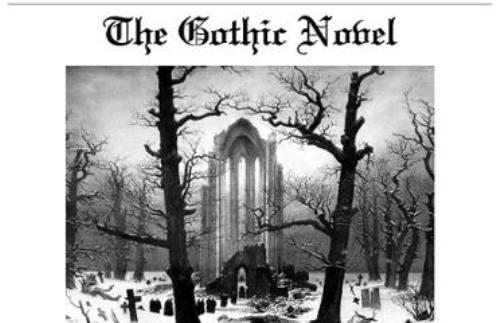

Why give such credence to old buildings and creepy wilderness?

And often, that setting is main player in the story-and more than often, its title: The Castle of Otranto, Wuthering Heights, Northanger Abbey, you get the idea. Is it a ghost story? Is it a psychological portrait? Is it both?ĭrafty monasteries, windy moors, subterranean passageways, rotting mansions, dark castles at the top of the hill with lightning streaking across the sky: it's just your friendly Gothic neighborhood. Watson, but how about taking a look a detective story that subverts the role of the traditional investigator? The Moonstone does a lot for the mystery genre, but more importantly for our purposes, its development of setting and atmosphere owes a great debt to the Gothic tradition.Įver wonder how a mystery without clear-cut answers plays out? American novelist, Henry James, is kind of in a league of his own but in The Turn of the Screw, he blends the best of Gothicism with his own brand of literary realism. You've heard of Sherlock and his trusty Dr. Gothic novels didn't start out with a formula, and their mysterious elements contributed more to the overall atmosphere of the story rather than taking center stage.Īnd, of course, inspired centuries of mystery writing to come. They needed to know what exactly was behind that shimmering veil, who put out the candles, and where exactly that wailing was coming from. Readers of Gothic novels were enthralled. Here's the thing though: Gothic novels, at least the very early ones, were doing their own thing-and their plots were huge surprises. What was once new, eye-opening, and thought-provoking has been replicated so much that you now know from the first shot that the random person introduced in the opening scene just happens to be the culprit. You might think of formulaic crime dramas or grocery store copy-cat texts. You may associate mysteries more with the methodical stories of Sherlock Holmes and their various adaptations in film and television. Some live for the moment that they find out their guess was right on the money.Īnd that surprise is part of both the success and potential downfall of Gothic novels. What is it about a good who-done-it that engrosses audiences? Some like the chase. People have been salivating over mysteries even before the Sphinx offered her first riddle.


 0 kommentar(er)
0 kommentar(er)
